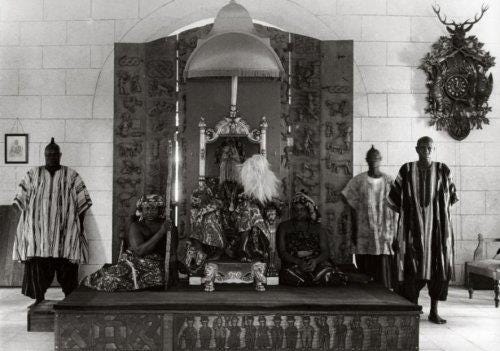
The Oyo Empire was a powerful and important kingdom in West Africa, lasting from the 1300s to the 1800s. It was started by the Yoruba people in what is now southwestern Nigeria. The empire became strong and influential due to its powerful army, good leadership, and strong trade networks.
The story of Oyo begins with Oranmiyan, a legendary Yoruba prince. He founded the empire and set up its capital in Oyo-Ile. The empire’s military strength came from its cavalry—soldiers on horses. These horses were traded from the northern regions, allowing Oyo to conquer and control large areas. At its height in the 1600s and 1700s, the Oyo Empire controlled parts of what are now Nigeria, Benin, and Togo.
The empire had a well-organized government. The king, called the Alaafin, was the top ruler. He was advised by a group of seven chiefs known as the Oyo Mesi. This council helped balance the king’s power, ensuring that no single person had too much control. This system helped keep the government stable and fair.
Oyo’s economy was strong because of farming, trade, and tribute from conquered regions. The empire was in a good location to control important trade routes. Traders from different parts of West Africa and beyond came to Oyo to buy and sell goods like kola nuts, ivory, and slaves. This trade made Oyo very rich and powerful.
However, the Oyo Empire began to weaken in the late 1700s. There were several reasons for this decline. Internal problems, like fights over who should be the next king, caused instability. Nearby kingdoms, such as Dahomey, started to challenge Oyo’s power. Additionally, Europeans began to have more influence in the region, which created new pressures. One major blow came from the Fulani jihad in the early 1800s. The Fulani people attacked and defeated Oyo in several battles, taking away much of its territory.
By the mid-1800s, the Oyo Empire had broken apart. Its central authority was weak, and it had lost much of its land. When the British started to colonize Nigeria in the late 1800s, they took over the remaining parts of Oyo. This marked the end of the empire.
Even though the Oyo Empire no longer exists, its legacy remains. The cultural and political traditions of Oyo still influence the Yoruba people today, showing the lasting impact of this once-great empire…..Discover More
See 4 Major Reasons why France Prolonged the Three-year Biafran Civil War

Leave a Reply